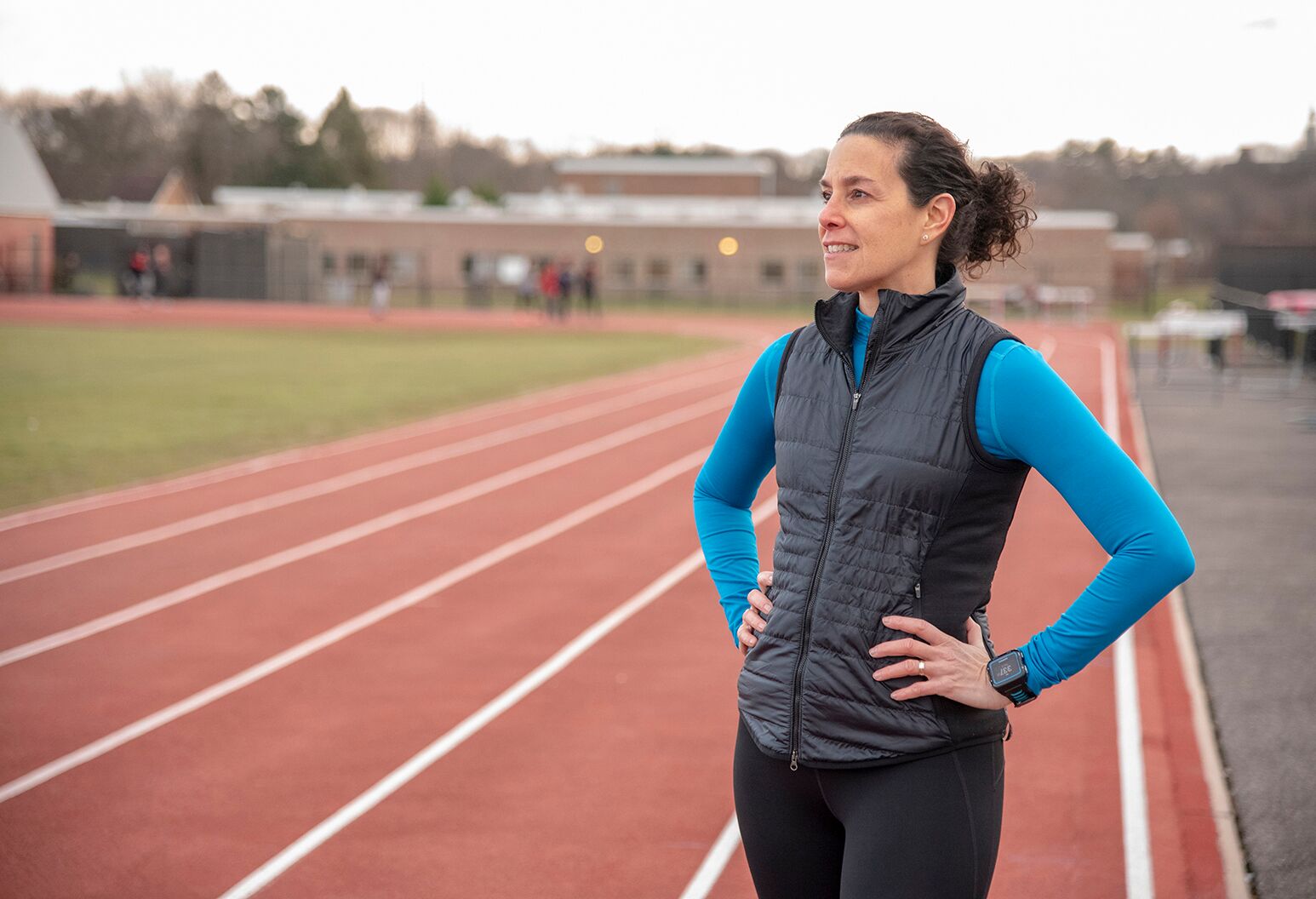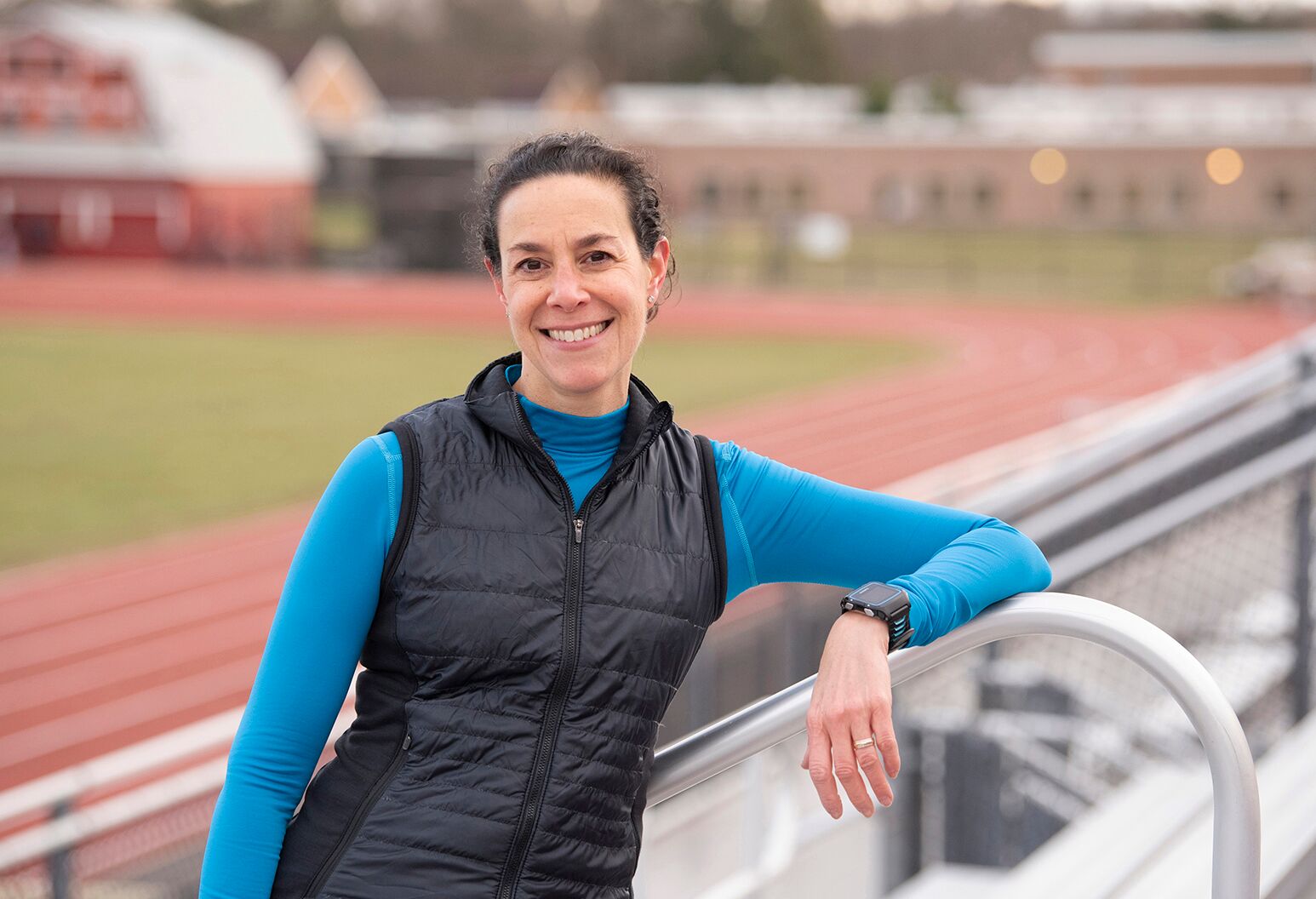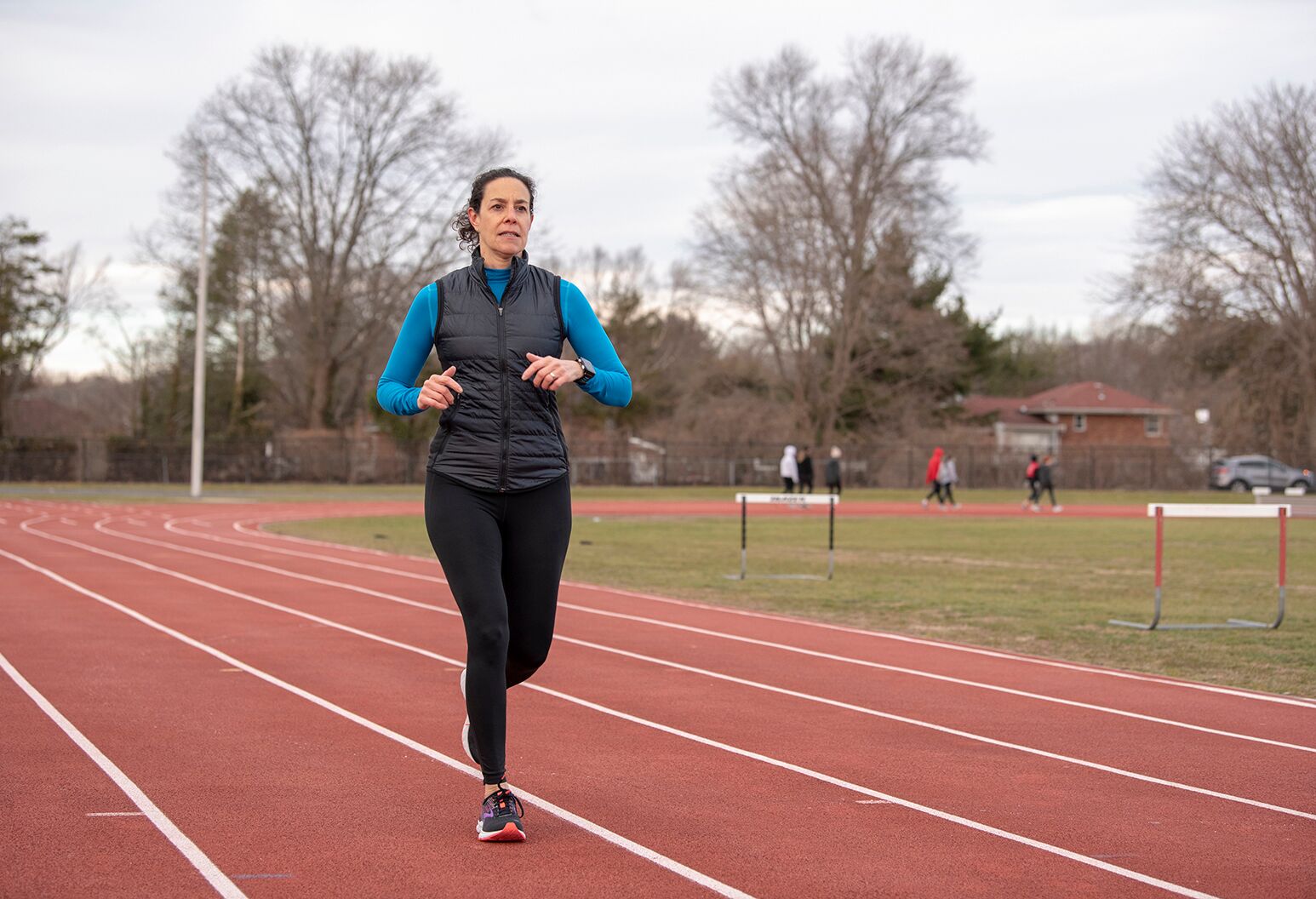Our representatives are available to schedule your appointment Monday through Friday from 9am to 5pm.
For a Northwell ambulance, call
(833) 259-2367.

Nicole Henn of Syosset, New York, had just completed her second full Ironman marathon last summer and turned her attention to training for the New York City Marathon. That’s when the 50-year-old mother of three noticed she wasn’t feeling right. “My running pace was slow,” she said. “I was getting headaches, and in the next couple of weeks, I started having memory loss.”

At work, she would ask colleagues questions that they had just addressed in a meeting. And at home, she would talk with her husband and repeatedly ask him the same questions, raising his concern. “I was making excuses for my memory,” said Nicole. “I was getting the girls ready for college, so it’s easy to get overwhelmed and forget things.”
After initially trying to shrug off these issues, she made an appointment with her general practitioner, who ran some blood work and ordered an MRI. She was driving to work when she received a call from the radiologist’s office. They told her to go to the Emergency Department at North Shore University Hospital right away because they found a large mass on her brain. “I’m a fairly healthy person,” said Nicole. “To learn that I had a brain tumor was really shocking and scary. I didn’t know what to do.”
She was admitted to the hospital for further testing, including blood work, a CT scan and an additional MRI, which showed she had a craniopharyngioma, a noncancerous tumor that grows near the pituitary gland. She met with neurosurgeon, Mark Bruce Eisenberg, MD, who assembled a surgical team to remove the tumor just six days later. “My husband and I discussed whether we should get other medical opinions, but it was evident that time was of the essence,” she said.
Nicole was able to have minimally invasive surgery because the mass was accessible through the nose and sinus passages. Using small surgical tools, Dr. Eisenberg and his team created a pathway up to the tumor to remove it. “Going in through the nose was great because it makes recovery time much better,” said Nicole, adding that the other option is to cut a hole in the skull to remove the growth. The operation took a little less than eight hours.
At North Shore University Hospital, our neurosurgery experts are recognized leaders in the treatment of brain, spine and nervous system disorders.
The surgical team was able to remove the entire tumor, so she didn’t need radiation therapy after surgery. However, because the tumor was intertwined with the pituitary gland, doctors had to cut the pea-sized organ out. The pituitary gland makes hormones important for various body functions, so Nicole now needs to take medications and replacement hormones.
After surgery, Nicole stayed in the ICU for a few days, where Dr. Eisenberg had the opportunity to meet her three daughters. “After that, he would ask me about them every single time I saw him,” she said. “Everybody I met at Northwell was like that.” She then moved to a hospital room, where she spent another week and a half, and then returned home to rest.
One noticeable benefit of the surgery is that her memory is much better. The tumor pressed on the hypothalamus (the brain’s memory bank). “I didn’t realize how much of a fog I was in,” she said, adding that she was able to start easing back into work by mid-November.
Just six weeks after surgery, Nicole returned to her workouts and is registered for the New York City half marathon in March. A half Ironman race is also on the calendar for June. “I’m nowhere where I was as far as pace and time, but I’m just happy to be participating.”

Nicole credits the excellent health she was in before the surgery with her rapid recovery, but she still faces challenges. At four months post-surgery, Nicole has soreness in her nose and headaches from the procedure, although this is expected to subside. She also has to take medications—some for the rest of her life—to replace the important hormones that were made by her pituitary gland. She’s working with her endocrinologist, Esti Charlap, MD, to adjust the dosage and address side effects, such as weight gain and hair loss. She also sees an ear, nose and throat doctor, Margherita Bruni, MD, to ensure she continues to heal properly.
“It’s definitely been an adjustment to my life,” said Nicole. “But all my physicians have been really fabulous and caring. When I was first diagnosed, I questioned whether I needed to go into Manhattan for treatment, but we were able to get wonderful care close to home.”
Our representatives are available to schedule your appointment Monday through Friday from 9am to 5pm.
For a Northwell ambulance, call
(833) 259-2367.